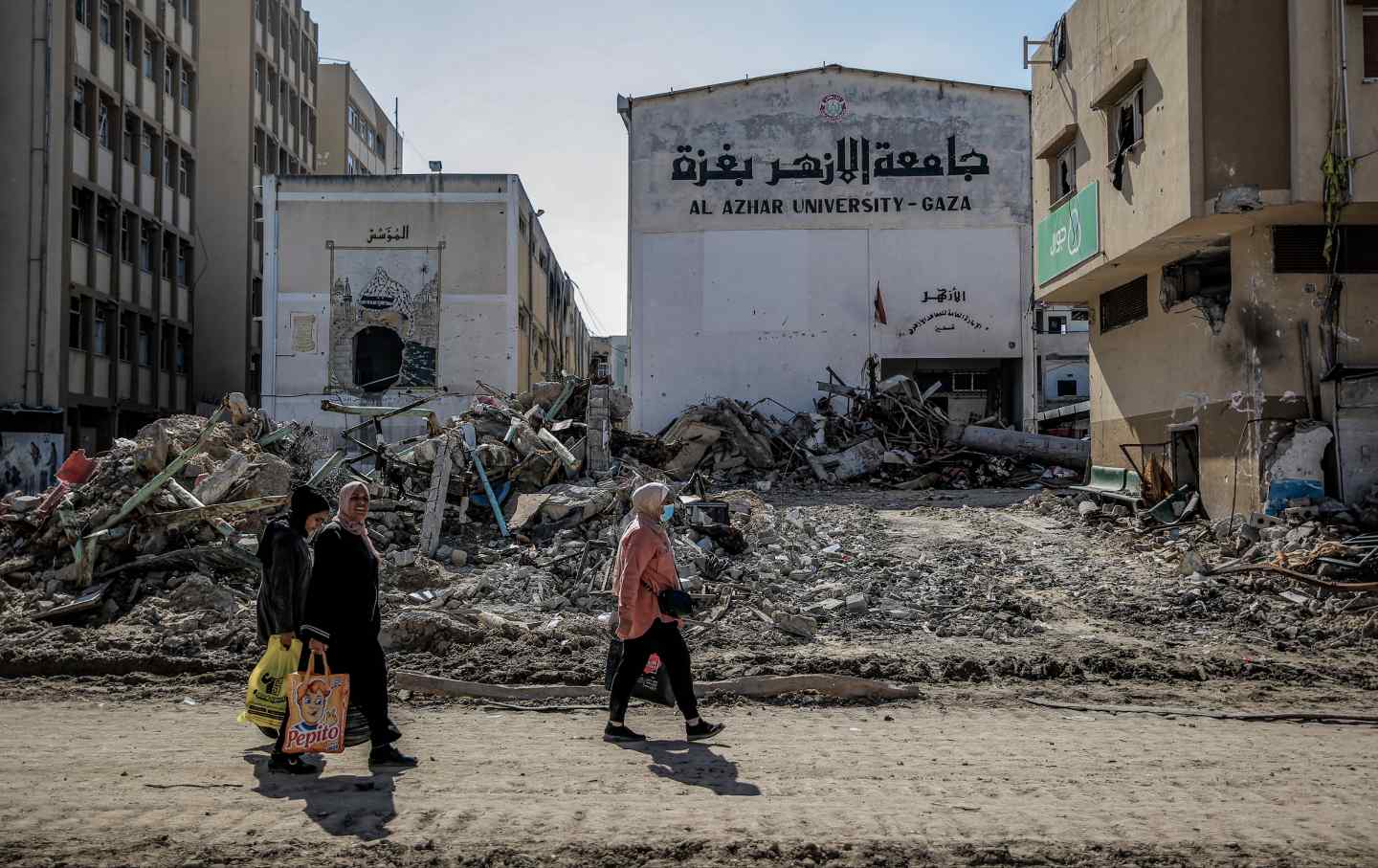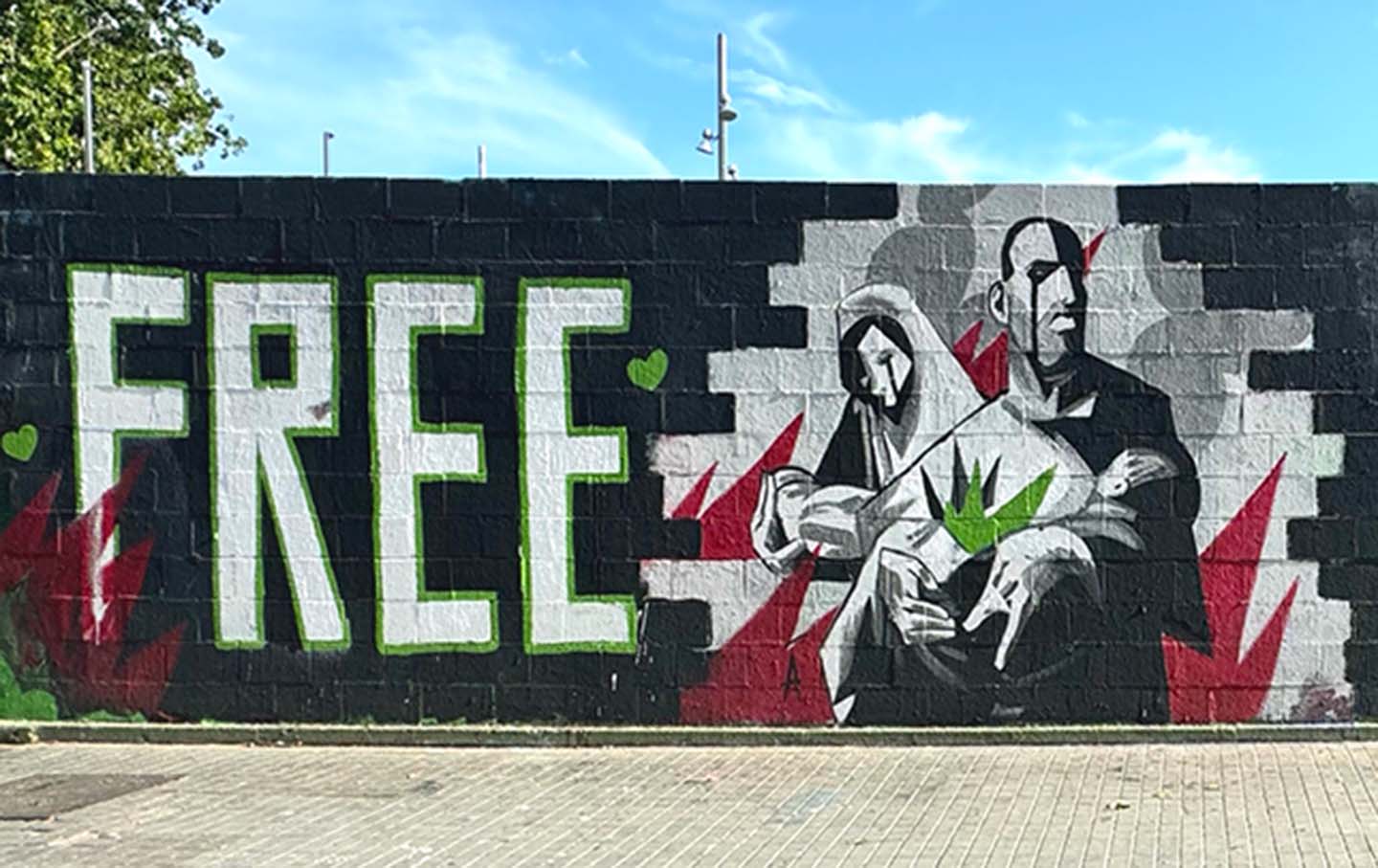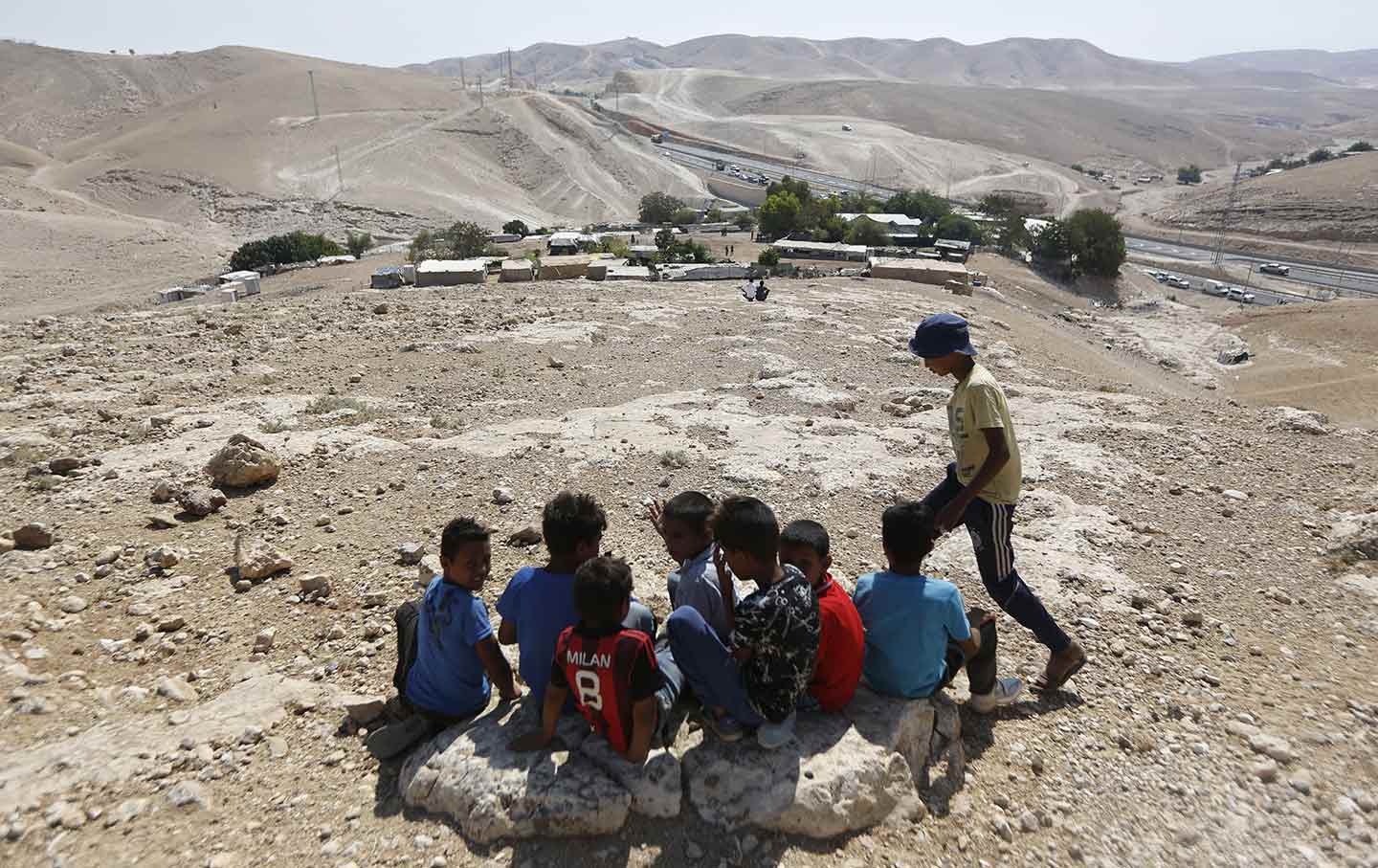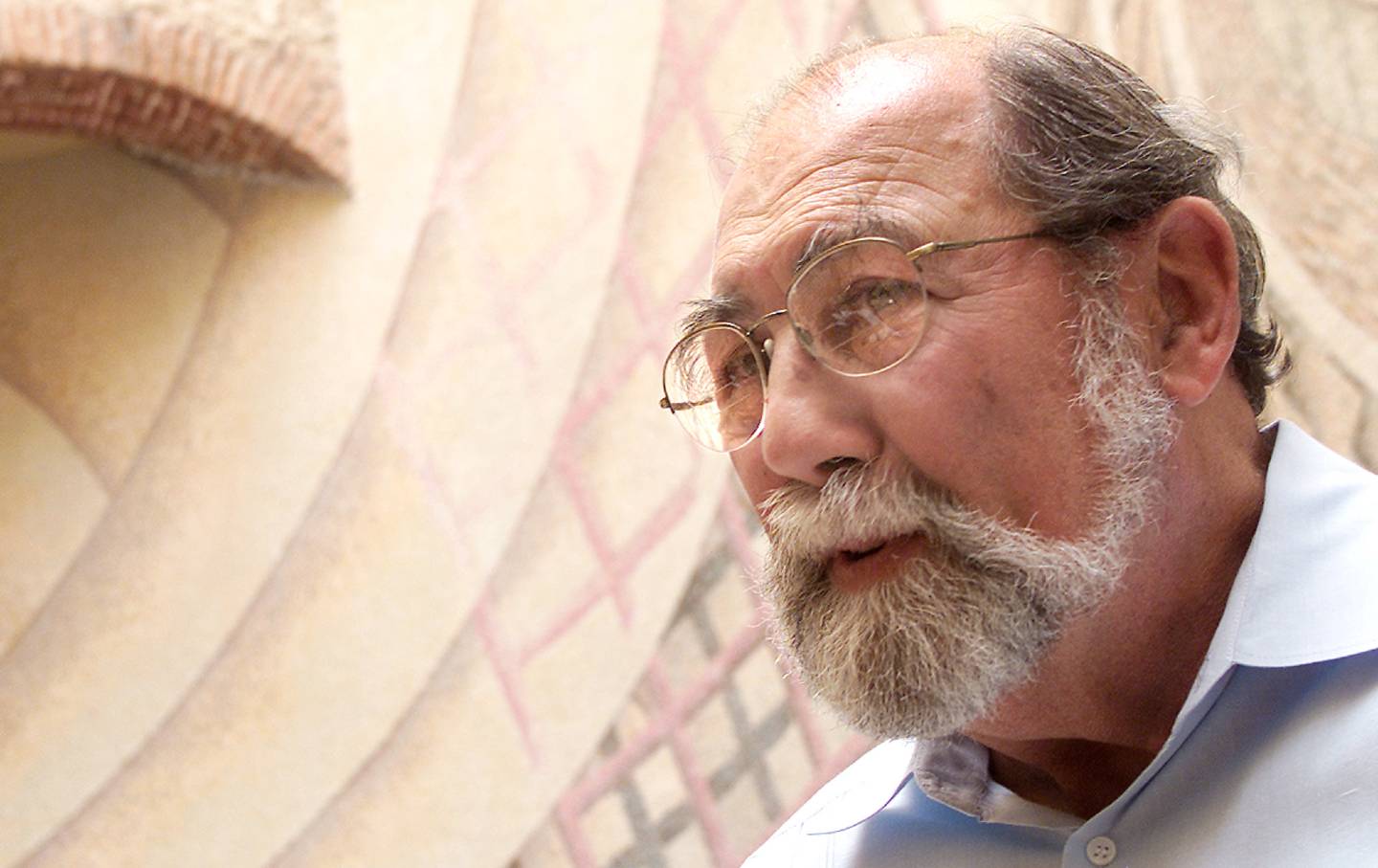
Benjamin Netanyahu in Jerusalem on February 5, 2024.
(Gil Cohen-Magen / Pool /AFP via Getty Images)The American decision not to veto a UN Security Council resolution demanding an immediate cease-fire in Gaza—the first time since the beginning of the war that it had allowed such a resolution to pass—sent shock waves through Israel. Benjamin Netanyahu’s subsequent cancellation of a planned Israeli meeting with the Biden government in Washington only heightened the impression that Israel had been left isolated in the international arena and that Netanyahu was jeopardizing the country’s most important asset—its alliance with the United States.
Yet, though there was widespread criticism of Netanyahu’s handling of these sensitive issues, even his opponents—both in the “liberal” camp and on the moderate right—were unanimous in their rejection of the UN vote. Yair Lapid, head of the opposition Yesh Atid party, said that the resolution was “dangerous, unfair, and Israel will not accept it.” Minister Hili Tropper, a close ally of Netanyahu’s rival Benny Gantz—who polls show would win handily if an election were held today—said, “The war must not stop.” These comments did not differ greatly from the angry reactions by extreme-right leaders such as Bezalel Smotrich or Itamar Ben Gvir.
This near-unanimous rejection of a cease-fire mirrors the cross-party support for an invasion of Rafah, even though Netanyahu does not claim that the operation will achieve the long-awaited “total victory he has promised.
The opposition to a cease-fire may seem strange to some. Many Israelis accept the claim that Netanyahu is continuing the war to further his political and personal interests. The families of the Israeli hostages, for instance, are growing more critical of Netanyahu’s “foot-dragging” and amplifying their calls for a “deal now.”.
Even within the security establishment, more people are openly saying that “eliminating Hamas” is not an achievable goal. “[T]o say that one day there will be a complete victory in Gaza—this is a complete lie,” former IDF spokesman Ronen Manelis recently said. “Israel cannot completely eliminate Hamas in an operation that lasts only a few months.”
So if the view that Netanyahu is continuing the war for personal interests is growing; if the futility of continuing the war is becoming clearer, with regard to both toppling Hamas and releasing the hostages; if it is becoming obvious that continuing the war is liable to damage relations with the United States—how can one explain the consensus in Israel around the “danger” of a cease-fire?
One explanation is the trauma inflicted by Hamas’s October 7 massacre. Many Israelis tell themselves that, as long as Hamas exists and commands popular support, there is no alternative to war. A second explanation involves Netanyahu’s undeniable rhetorical talent, which, despite his political weakness, has succeeded in instilling the slogan of “total victory” even among those who do not believe a word he speaks, and those who understand, consciously or unconsciously, that this victory is not possible.
But there is another explanation. Until October 6, the consensus among the Jewish-Israeli public was that the “Palestinian issue” should not bother them too much. October 7 shattered this myth. The “Palestinian issue” returned, in full, bloody force, to the agenda.
There were two ostensible responses to the destruction of this status quo: a political arrangement that genuinely recognized the presence of another people in this land and their right to a life of dignity and freedom, or a war of extinction against the enemy beyond the wall. The Jewish public, which never really internalized the first option, chose the second.
In this light, the very idea of a cease-fire seems threatening. It would force the Jewish public to recognize that the goals presented by Netanyahu and the army—”toppling Hamas” and releasing the hostages through military pressure—were simply unrealistic. The public would have to concede what may be perceived as a failure, even a defeat, in the face of Hamas. After the trauma and humiliation of October 7, it is hard for many to swallow such a defeat.
But there is a deeper threat. A cease-fire could force the Jewish public to confront more fundamental questions. If the status quo does not work, and a constant war with the Palestinians cannot achieve the desired victory, then what remains is the truth: that the only way for Jews to live in security is through a political compromise that respects the rights of the Palestinians.
The complete rejection of the cease-fire and its portrayal as a threat to Israel shows that we are far from the acknowledgment of that truth. But strangely, we may also be closer than people think. In 1992, when Israelis were forced to choose between a rift with the United States—due to then-Prime Minister Yitzhak Shamir’s refusal to agree to the outline presented by the Americans for talks with the Palestinians—or mending the rift, they chose the second option. Yitzhak Rabin was elected prime minister and, a year later, the Oslo Accords were signed.
Popular
“swipe left below to view more authors”Swipe →Will the current rift with the American administration convince Israeli Jews to abandon the idea of perpetual war and agree to give a chance to political deal with the Palestinians? It’s very unclear. But what is certain is that Israel is rapidly approaching a junction where it will have to choose: toward a cease-fire and the possibility of dialogue with the Palestinians, or a war with no end and international isolation the likes of which it has never known. Because the option of going backwards, to the status quo of October 6, is clearly impossible.
Thank you for reading The Nation
We hope you enjoyed the story you just read, just one of the many incisive, deeply-reported articles we publish daily. Now more than ever, we need fearless journalism that shifts the needle on important issues, uncovers malfeasance and corruption, and uplifts voices and perspectives that often go unheard in mainstream media.
Throughout this critical election year and a time of media austerity and renewed campus activism and rising labor organizing, independent journalism that gets to the heart of the matter is more critical than ever before. Donate right now and help us hold the powerful accountable, shine a light on issues that would otherwise be swept under the rug, and build a more just and equitable future.
For nearly 160 years, The Nation has stood for truth, justice, and moral clarity. As a reader-supported publication, we are not beholden to the whims of advertisers or a corporate owner. But it does take financial resources to report on stories that may take weeks or months to properly investigate, thoroughly edit and fact-check articles, and get our stories into the hands of readers.
Donate today and stand with us for a better future. Thank you for being a supporter of independent journalism.
More from The Nation

Every University in Gaza Has Been Destroyed. So Have These Students’ Dreams. Every University in Gaza Has Been Destroyed. So Have These Students’ Dreams.
The class of 2024 was supposed to graduate this year. Instead, they are trapped in the hell of Gaza, and their futures are unknown.

Netanyahu’s Theater of the Grotesque Netanyahu’s Theater of the Grotesque
Yesterday, Congress lauded and applauded the Israeli prime minister, who has been accused of war crimes by the ICC, even as his victims continued to die in Gaza.

Palestinian Olympians Are Competing as Their World Burns Palestinian Olympians Are Competing as Their World Burns
Palestinian Olympians will make history in Paris, despite unfathomable conditions of genocide.

International Solidarity With Palestine International Solidarity With Palestine
Street mural, Barcelona, Catalunya, Spain.

The Horror in Israel and Palestine Began Half a Century Ago The Horror in Israel and Palestine Began Half a Century Ago
From the very start, Jewish violence has accompanied the proliferation of settlements.

Wayne Smith Devoted His Career to Dialogue and Diplomacy Wayne Smith Devoted His Career to Dialogue and Diplomacy
The former Foreign Service officer liked to say “Cuba seems to have the same effect on American administrations as the full moon has on werewolves.”


